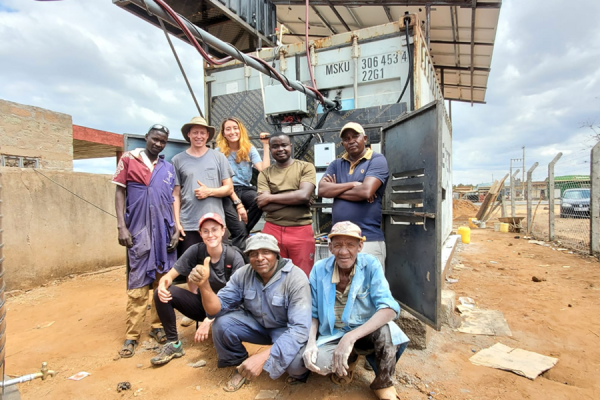Our Research Mobile evaporative cooling rooms for vegetable preservation
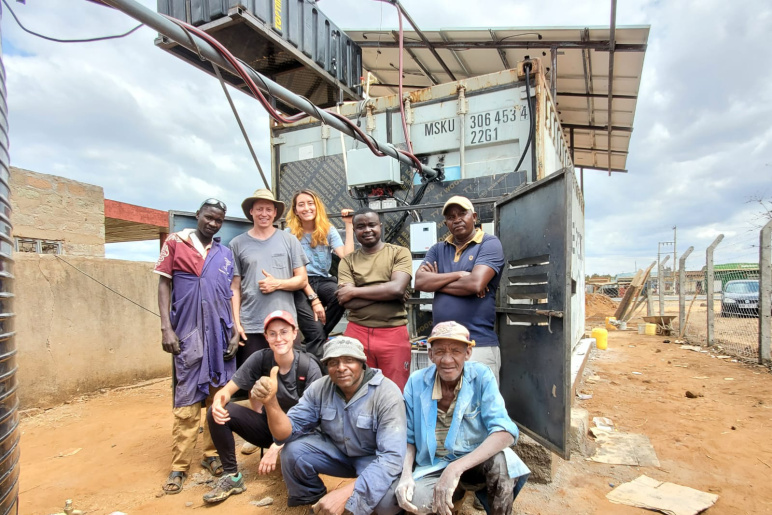
MIT D-Lab research engineer Eric Verploegen, Gabriela Alvarez Perez ’22, and Maëlle Sardet, G, MEng with the Solar Freeze team members at the commissioning of the forced-air evaporative cooling chamber in Kibwezi, Kenya. Image credit: Peter Mumo
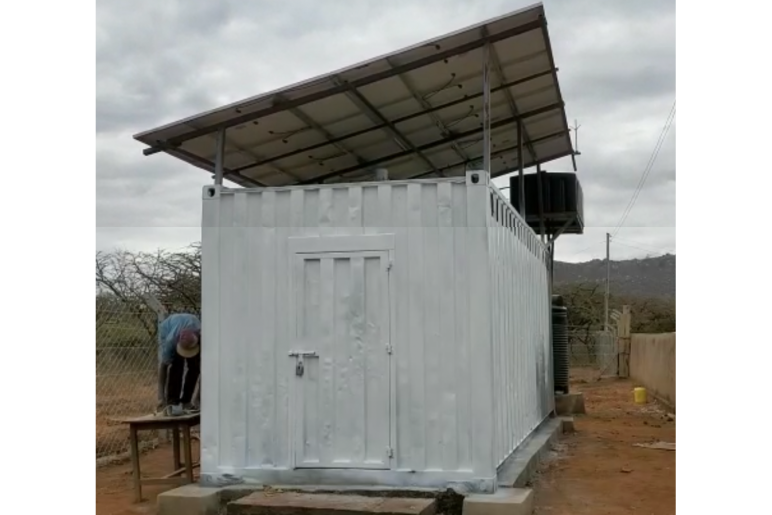
The front of the pilot forced-air evaporative cooling chamber in Kibwezi, Kenya, showing the custom entrance, the solar PV panels above the chamber, and the upper water storage tank (black rectangle above the upper right corner of the container)
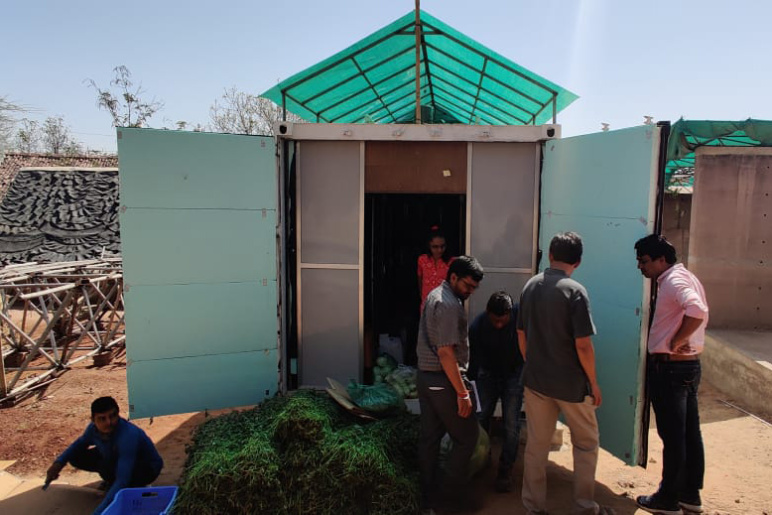
People loading the container with vegetables in Gujarat India.
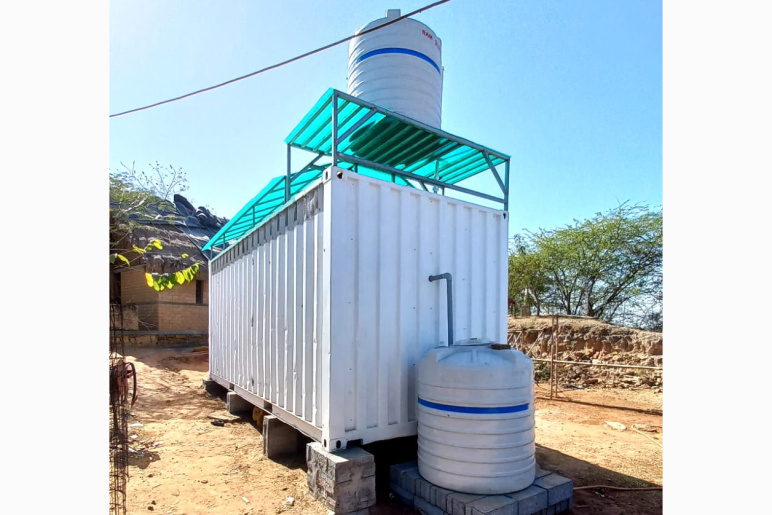
The exterior of the forced-air evaporative cooling chamber in Gujarat, India. On top of the chamber is a water tank to supply water to the evaporative cooling pads and a plastic roof to provide shade and protect the fans mounted in the ceiling of the container from rain. A second water tank is behind the unit. Image credit: Mahavir Acharya
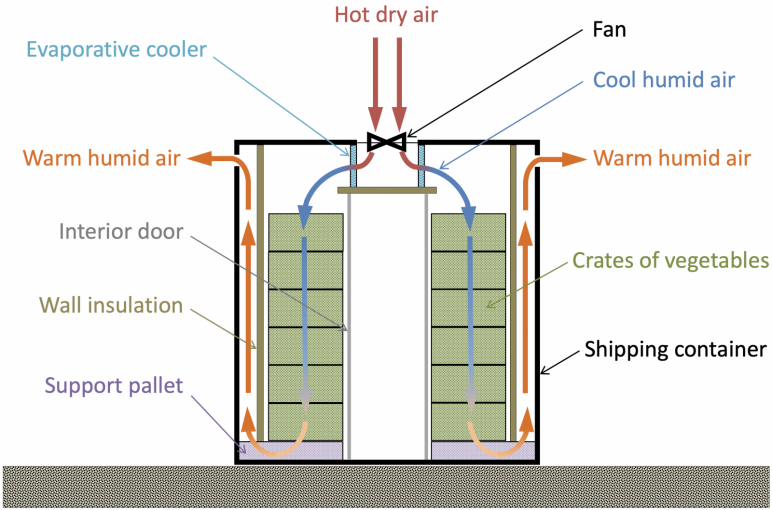
Cross-section schematic of the forced-air evaporative cooling chamber. This design is based on retrofitting a used standard 20’ or 40’ shipping container in order to reduce construction costs, allow for the chamber to be mobile, and improve ease of construction and replicability. Image credit: Eric Verploegen
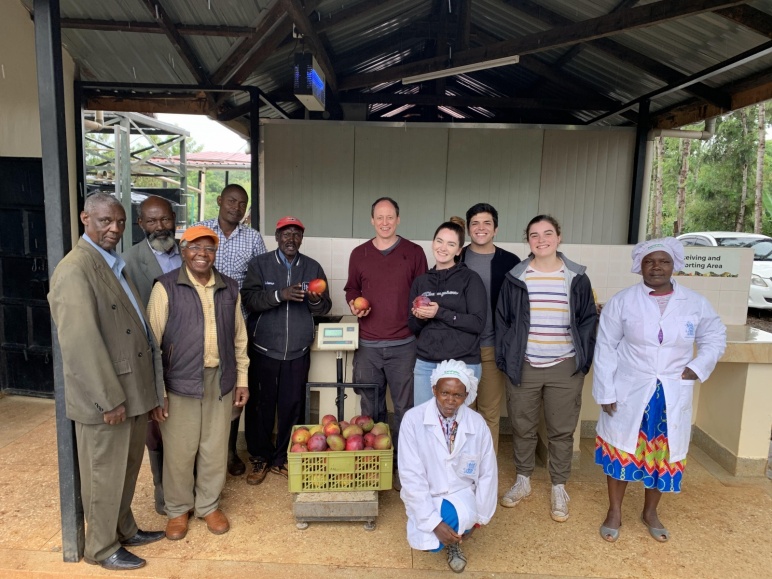
The MIT D-Lab research team with members of a farming cooperative in Karurumo, Kenya. Image credit: Benson Mania
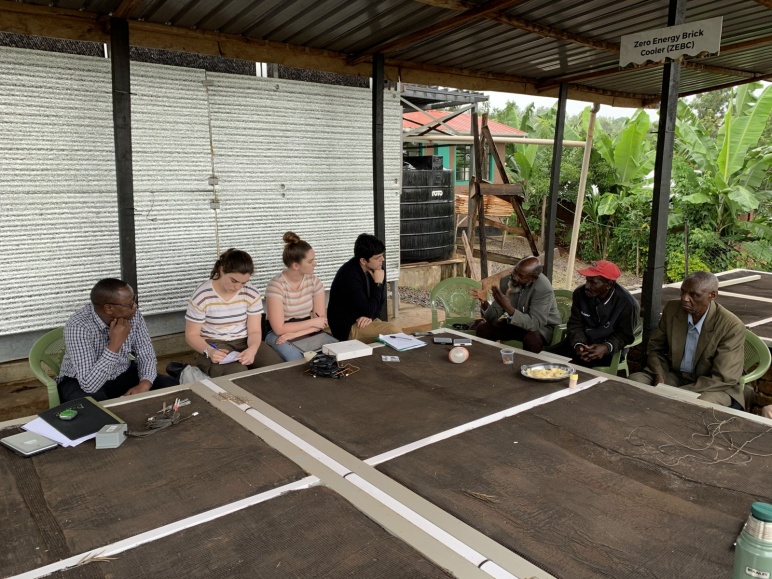
MIT and University of Nairobi students interviewing members of a farming cooperative in Karurumo, Kenya. Image credit: Eric Verploegen
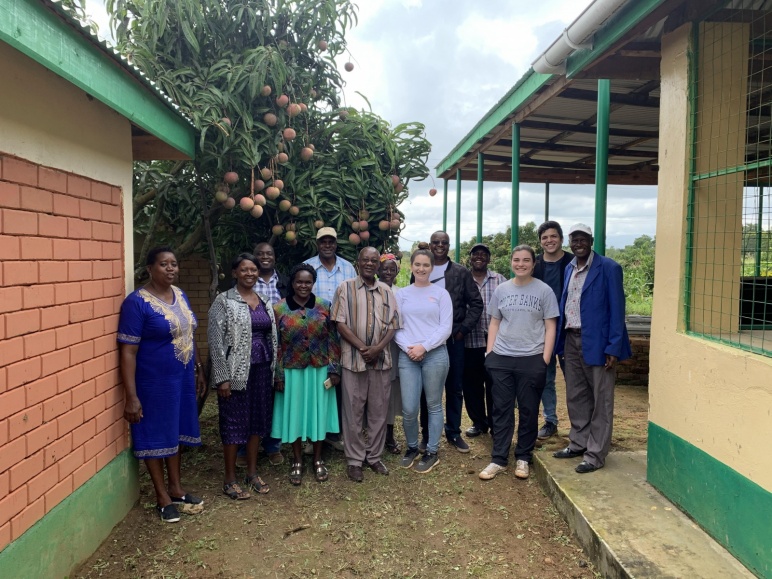
MIT and University of Nairobi students with members of a farming cooperative in Masii, Kenya. Image credit: Eric Verploegen
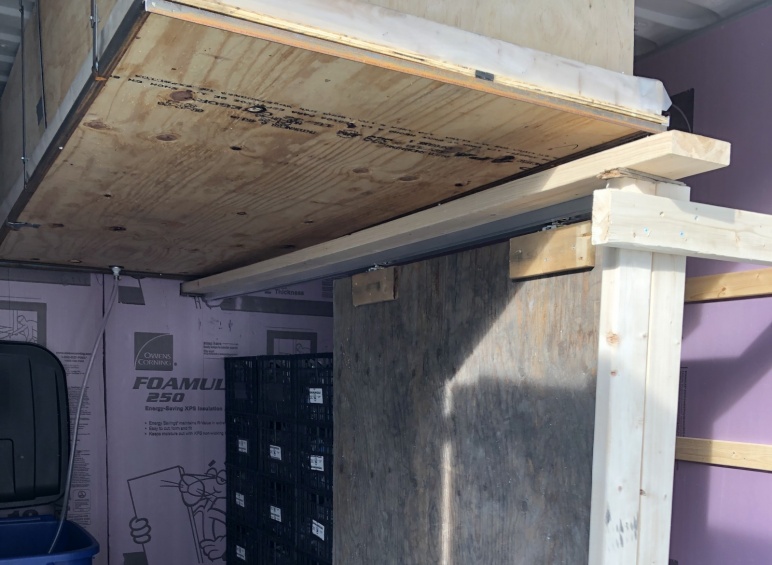
The experimental storage area inside the shipping container with the door slid open to allow the removal and placement of crates (black). Each crate contains eighty 8-ounce water bottles. The door to the right of the crates is mounted on an overhead track. Image credit: Eric Verploegen
Principal Investigators
Daniel Frey
- Professor of Mechanical Engineering
- Faculty Director for Research, MIT D-Lab
- Department of Mechanical Engineering
Leon Glicksman
- Professor of Building Technology and Mechanical Engineering
- Department of Architecture
Eric Verploegen
- Founder of CoolVeg
- Former Research Engineer at MIT D-Lab
Challenge:
Can we commercialize a cold storage chamber using evaporative cooling that is lower cost than the currently available technologies? Can we reduce post-harvest losses of fruits and vegetables for farmers in rural off-grid communities?
Research Strategy
- Conduct prototype testing and computer modeling to continue to improve the forced-air evaporative cooling chamber performance and design
- Collaborate with existing cold storage providers and NGOs to pilot the technology with smallholder farmers in India and Kenya, and gather data from these pilots
- Identify key markets and approaches for scaling the commercialization of forced-air evaporative cooling chambers
- Develop and publish publicly available open-source designs of the technology and engage and support early adopters and promoters of the technology
Project description
In many countries across the world, a significant portion of the food produced (30-50%) is lost before it reaches the table primarily due to high-temperature conditions. Forced-air evaporative cooling chambers have the potential to provide an effective, low-cost solution for postharvest fruit and vegetable storage in low-income regions with hot and dry climates. This innovative design, based on retrofitting shipping containers, will provide a lower-cost alternative to refrigerated cold rooms and a better-performing alternative to charcoal evaporative cooling chambers and non-climate-controlled environments. The water required to operate the chamber is only a small fraction of the water consumed in growing the food. Access to improved fruit and vegetable storage will reduce food loss, enable farmers to sell their produce at a higher price at different times of day, and improve access to nutritious food in the community. This Solutions grant will support the development, publishing, and promotion of publicly available open-source designs of the technology, along with continued testing of pilot chambers operating in Kenya and India, and engagement with early adopters of the technology.
Outcomes
- Evaluated performance of forced-air evaporative cooling chamber at MIT, India and Kenya
- Conducted market research and customer discovery interviews with nine cold storage providers in Africa and India and learned that forced-air evaporative cooling chambers are well suited to address the pre-cooling sector of the horticulture market
- Constructed and deployed the first two full-sized pilot chambers with a Kenyan social enterprise called Solar Freeze, and an NGO in Gujarat, India called Hunnarshala Foundation
- Produced detailed documentation of the chamber design that is publicly available through a dedicated website with overview videos targeted at early adopters and promoters of the technology
- Held online information sessions and workshops promoting the technology and the open-source documentation that were attended by 50 participants from over 10 countries
- Established a nonprofit organization, CoolVeg, that is focused on providing technical support to companies and other organizations looking to commercialize evaporative cooling technologies for post-harvest storage of fruits and vegetables
News
Spinout Company
CoolVeg
CoolVeg is a nonprofit organization founded to increase access and adoption of evaporative cooling technologies through collaborations with businesses, research institutions, NGOs, and government agencies.
Additional Details
Impact Areas
- Food
Research Themes
- Technology & Commercialization
- Sustainability & Adaptation
- Transforming Food Systems
- Equity & Access
Year Funded
- 2021
Grant Type
- Solutions Grant
Status
- Completed



